#communalism
Text
Super helpful comic by @deannazandt
Full image descriptions by the author here and in the alt text

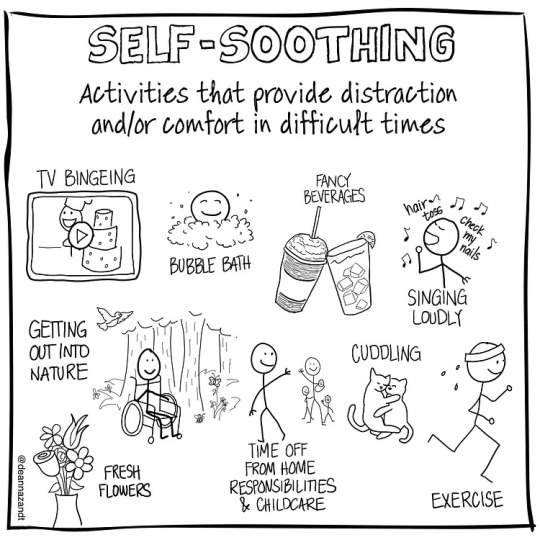

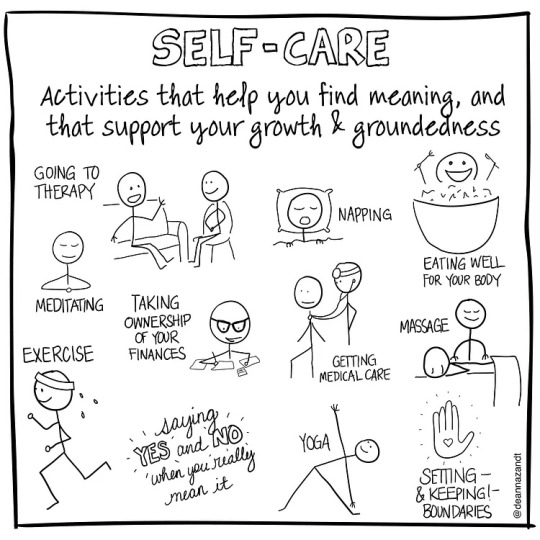
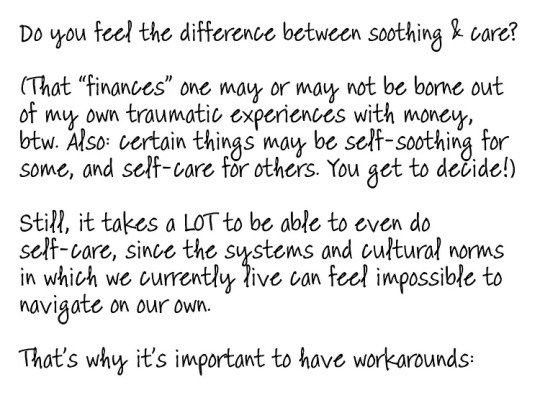
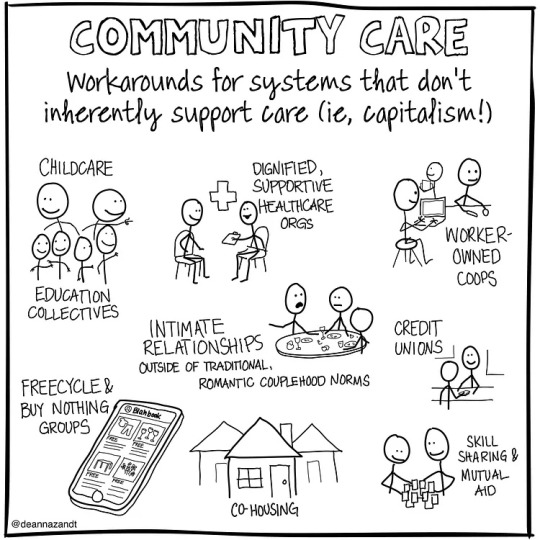

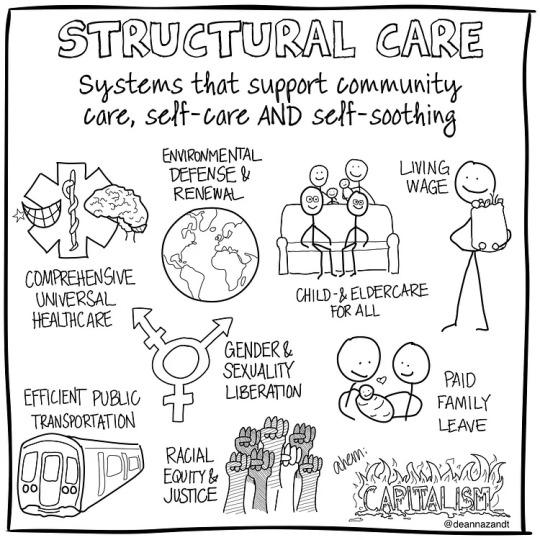

#self care#self soothing#communalism#community care#structural care#radical means getting to the roots#fundamentally changing things#that’s what we need to create a just and peaceful world#mutual aid#comic#infographic#anarchocommunism#anti capitalism#anticapitalism#anticapitalist#anti capitalist
417 notes
·
View notes
Text
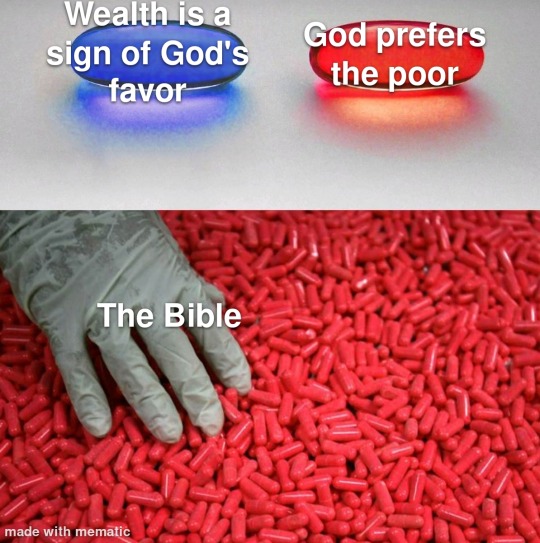
God has a preference...
#leftist#leftistbiblestudy#leftistchristianity#thewordinblackandred#anarchism#anarchist#bible memes#communalism#communism#fresh memes
348 notes
·
View notes
Text
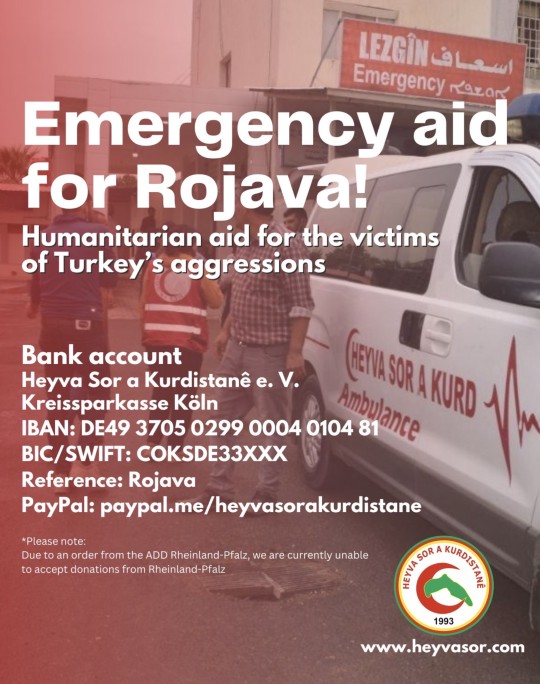
Emergency aid for Rojava!
Humanitarian aid for the victims of Turkey’s aggressions
Turkey has been bombing civilian infrastructure in Rojava (North and East Syria) since 4th of October 2023, and the region is heading for a humanitarian catastrophe. Turkey has bombed more than 150 targets so far: Much of the region's vital infrastructure has been damaged or destroyed in a matter of hours. Turkey’s attacks have so far caused dozens of civilian deaths and injuries and destroyed 80 per cent of civilian infrastructure, including water and power supplies, hospitals, residential areas, schools, oil fields, factories and warehouses. Hundreds of thousands of people have been cut off from electricity and water supplies for days now. The Covid hospital in Dêrik, one of the most important hospitals of its kind in the region, was completely destroyed by the Turkish air strikes. Numerous other health facilities have been destroyed, hospitals cut off from electricity, cold chains broken - there are calls for blood donations. As Turkey’s attacks continue, the humanitarian situation is expected to deteriorate further and the death toll to rise. The Kurdish Red Crescent (Heyva Sor a Kurd) is on the ground providing vital humanitarian assistance. Support the work of Heyva Sor a Kurd with your donations!
Bank account
Heyva Sor a Kurdistanê e. V.
Kreissparkasse Köln
IBAN: DE49 3705 0299 0004 0104 81
BIC/SWIFT: COKSDE33XXX
Reference: Rojava
PayPal: paypal.me/heyvasorakurdistane
*please note:
Due to an order from the ADD Rheinland-Pfalz, they are currently unable to accept donations from Rheinland-Pfalz.
Contact and further information:
www.heyvasor.com
E-Mail: [email protected]
Phone: +49 (0) 2241 975 25 83
Instagram: heyvasor
Twitter: @Heyva__Sor
Facebook: Heyva Sor a Kurdistanê e.V.
302 notes
·
View notes
Text

The Hamburglar is a communalist!
29 notes
·
View notes
Text
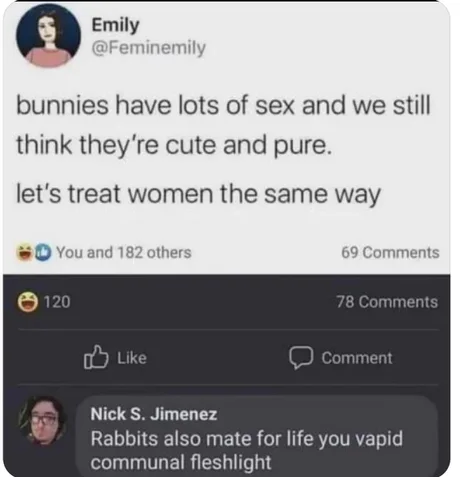
Laugh Out Loud with Our Vibrant Collection of Communal Memes: Punny Jokes and Hilarious Content! | Best Dank Memes
#vapid#comunal#communalism#funny#funny memes#puns#memes#humor#jokes#lol#funny post#funny shit#funny stuff
23 notes
·
View notes
Text
Y'all must read the play "Final Solutions" by Mahesh Dattani.
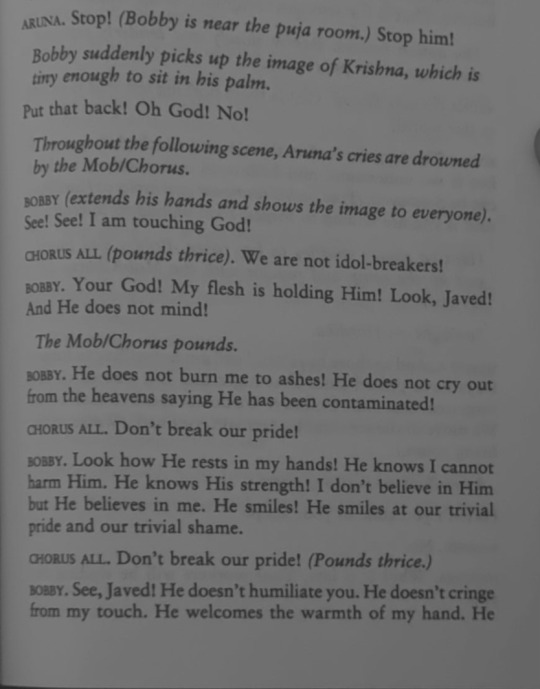
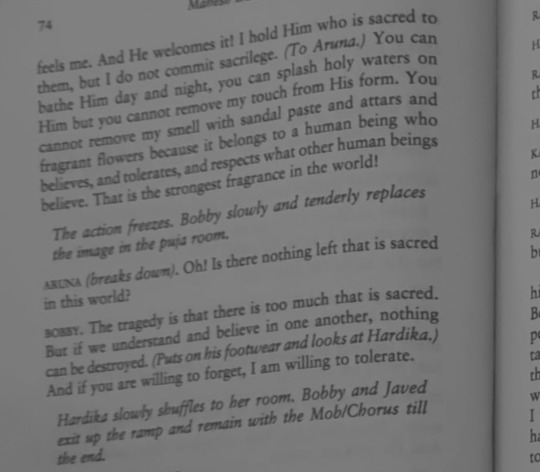
1947 is identified as the year that India and Pakistan gained independence from British Colonial rule. It is also the year that saw the formation of two separate states from one nation. One, Pakistan, was apparently founded on a theocratic principle and the other, India, founded apparently on principles of democracy and secularism. While the political establishment was celebrating the achievement of Independence and the formation of sovereign states, ordinary citizens were reeling from the shock of neighbours turning on each other and the dislocations where many were uprooted from the homes their families had lived in for generations. Although there have been several literary representations of the violence, of this traumatic severing of countries on religious and ethnic lines, there has been very little attempt in literature to link what is now obvious to most sociologists and even to the layman. Namely, communal tensions and fault lines in contemporary India have their origins in the trauma of partition as well as the lack of resolution or forgiveness. Mahesh Dattani’s play ‘Final Solutions’ is a rare literary/dramatic text that connects our contemporary context with the unforgiven trauma of 1947. This play places a modern liberal family in the middle of a communal riot—while two Muslim men seek sanctuary from the fundamentalist Hindu mob baying for their blood outside the house, inside the Hindu family must face their own demons—of the past as well as the present.
#desiblr#india#hinduism#islam#ram mandir#ayodhya#pakistan#circa 1947#partition#indian culture#independence#desi#religion#communalism#indian literature
16 notes
·
View notes
Text
introductory excerpts on intercommunalism:
Introduction
Intercommunalism is an ideology which was adopted by the Oakland chapter of the Black Panther Party after its turn away from revolutionary nationalism in 1970. According to Huey P. Newton the development of intercommunalism was necessary "because nations have been transformed into communities of the world."[1] Intercommunalists believe that most forms of nationalism are obsolescent, because international corporations and technologically advanced imperialist states have reduced most nations down to a series of discrete communities which exist to supply an imperial center, a situation called reactionary intercommunalism. They also believe this situation can be transformed into revolutionary intercommunalism and eventually communism if communities are able to link "liberated zones" together into a united front against imperialism.[2] Intercommunalism is a lesser-known aspect of the Panthers' legacy as much of its development occurred at the height of the party's suppression and reorientation towards survival programs.[3][4][5]
Reactionary Intercommunalism
Newton believed that imperialism had developed into a stage of reactionary intercommunalism. Reactionary intercommunalism is typified by the development of a tiny community of elites with a monopoly on technology and state power within a single hegemonic empire (currently the United States).[15][5]
This 'ruling circle' is different from the Bourgeoisie, which the Panthers treated as a much broader phenomenon. Newton said that "[t]here are very few controllers even in the white middle class. They can barely keep their heads above water, they are paying all the bills, living hand-to-mouth, and they have the extra expense of refusing to live like Black people." The Black bourgeoisie in particular is a "fantasy bourgeoisie" which could be rallied to a revolutionary cause through sufficient education.[12]
The ruling circle's monopoly on technology and education is important to maintaining reactionary intercommunalism, as it prevents the rest of the world's communities from fulfilling their material needs independently of the center, leaving them dependent on the Empire for advancement.[15] The ruling circle uses 'peaceful co-optation' more often than military invasion to reinforce its aims.[5]
Reactionary intercommunalism allows for no independent national sovereignty, as the dominance of the global hegemon means that all nations bend to the 'weight' of its interests.[4] Instead nations have been reduced down to constituent communities, or "a small unit with a comprehensive collection of institutions that exist to serve a small group of people." Each of these communities "want to determine their own destinies," but can only do so by joining into a revolutionary bloc. All of the communities have no superstructure apart from global capitalism, and while they have different economic conditions they are all 'under siege' by the same forces.[15][4][5][10][9]
Newton believed that if allowed to continue, reactionary intercommunalism would bring more and more of the world's population into the lumpenproletariat, including white workers. However he did not think that this would end racism, in fact he thought white workers would increasingly blame their exploitation on minorities, especially the increasingly proletarianised third world.[5]
Revolutionary Intercommunalism
Intercommunalists believe that Revolutionary Intercommunalism will come about when communities are able to break the technological monopoly of the center. Through technology, communities would be able to solve material contradictions and "develop a culture which is essentially human." Even though the Panthers disavowed the nation-state as a viable form of revolutionary political struggle, they continued to support state socialist countries such as China, North Vietnam and North Korea against American Imperialism. Indeed, they were considered the vanguard of revolutionary intercommunalism through liberating territories and establishing provisional governments ahead of the global turn towards revolutionary intercommunalism.[16] However such states could still be co-opted into reactionary intercommunalism through the introduction of western markets.[5]
While the party no longer believed in Black nationalism, they continued to believe that Black Americans would play a special role within the struggle for revolutionary intercommunalism. Due to the Atlantic slave trade, Newton believed that Black Americans were the "first real internationalists" due to their mixed cultural origin and wide dispersal among a range of communities. Since he believed Black Americans constituted a significant force for revolution within the United States, and the destruction of the United States seemed to be a prerequisite for world revolution, the Panthers continued to view Black Americans as "the vanguard of the world revolution."[17]
Criticism
Intercommunalism was strongly opposed by some Black Panthers, especially those invested in the Party's strategy of forming internationalist alliances with foreign states. Cleaver denounced the Oakland chapter as the 'right wing' of the party for their rejection of guerrilla warfare. Assata Shakur was also critical of the theory's rejection of nationalism, saying that "The problem [with intercommunalism] was that someone had forgotten to tell these oppressed communities they were no longer nations." Others, like Mumia Abu-Jamal thought that intercommunalism was a terrible rhetorical strategy, as few understood the theory and many disliked Newton's public speaking. The differences over intercommunalism were also exacerbated by FBI wire-tapping and fake letters sent between the Oakland and Algiers sections of the party.[9]
#intercommunalism#communalism#black panther party#theory#marxist#leftist#dialectical materialism#black power#history#bipoc#united states#wikipedia
32 notes
·
View notes
Text
hmm rant time. something that eats away at me a lot is how like, I know that we need to be organizing our communities to help fix like, at least half of the problems in our society/culture, but I'm not the ideal person to spearhead that. Not that there is necessarily an "ideal person" for it, but like, I'm disabled and have limited energy and terrible anxiety and can't drive. I did some organizing on my college campus and it was one of the hardest things I've ever done and I burnt out really fast. And no one was really willing to pick up the pieces after I had to bow out (which is understandable, we were all struggling students). But like, I'm online a lot in my downtime and I am always sharing posts like "hey community is really important, talk to your neighbors, organize mutual aid!!!" but I haven't really been able to live that out irl (besides donating to people when I can) and it makes me feel guilty or bad sometimes. Not because I think we should have some kind of like, purity culture mindset about how much each person is contributing, but because I know what needs to be done but can't really do it without a lot of help that I don't have right now. It's so frustrating.
39 notes
·
View notes
Text
"As long as hierarchy persists, as long as domination organises humanity around a system of elites, the project of dominating nature will continue to exist and inevitably lead our planet to ecological extinction." ~ Murray Bookchin
Humanity is not a parasite - Saint Andrewism
youtube
#anarchism#anarchistcommunism#anarchocommunism#anarchopunk#communism#anarchist#communalism#murray bookchin#ecology#environment#enviromental#environmentalism
20 notes
·
View notes
Text
Peace Universal Family, to those seeking proper Knowledge of Self. Stop buying these books. 120 Lessons is not sold, it's earned. There's a National Headquarters, Allah School in Mecca, were the Lessons are right and exact. There is Civilization Classes that is Live every Saturday at the knowledge hour taught by Allah Shah.
The reason for making this Born is because I have been receiving calls from several regions where Gods are purchasing 120 Lessons from Amazon by Allah Supreme Just Born and Wu-Tang. 120 Lessons is not to be sold or bought. Write Allah School in Mecca, 2122 Adam Clayton Powell Blvd, New York, New York 10027. Get it right and exact.
Peace
I Be Allah's Mathematics
#nation of gods and earths#supreme mathematics#five percent nation#allah school in mecca#hip hop#5% nation of gods and earths#black women#father allah#social capital#socialism#communalism#pan Human#families
16 notes
·
View notes
Text

“Eat gently and with gratitude
Give thanks for the circles that are life”
Art by fernleaf
from WomanSpirit Volume 9 #33
published Fall Equinox 1982 in Wolf Creek, Oregon
4 notes
·
View notes
Text
THIS IS BULLSHIT:
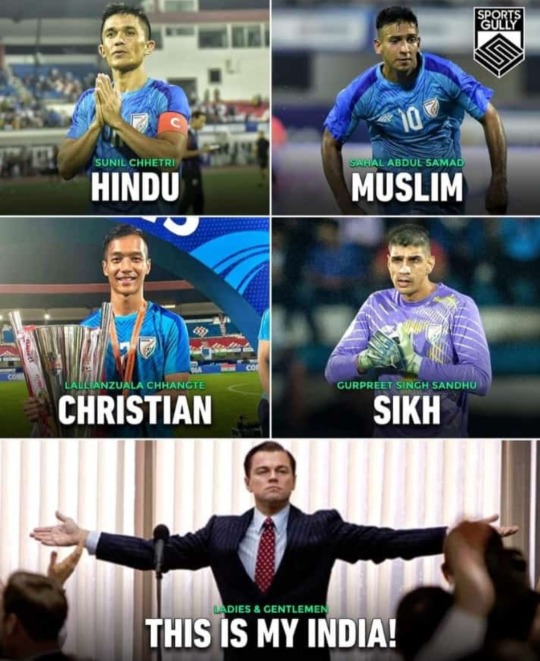
Yeah sure, just a cherry on a dung cake lol.
Diversity doesn't mean shit to anybody in this country, just a decoration to be discarded whenever seen fit.
A Sikh will be mocked as a Khalistani
A Muslim will be called a Jihadi terrorist
A Christian, and especially if he's from the North East? You're an exotic species brooo!
And it doesn't even matter if you're a Hindu, 'cause a Nepali will just be a 'chinki minki' to these North Indians (the people who constitute majority in our nation, not saying everyone is like that but you can't deny that most cases of racial or communal discrimination and bullying happens in North India or by North Indians).
Oh and I'm not making this up. It's stuff I've seen in my own college, which is supposed to be relatively better in terms of anti-bullying regulations. I wonder how people-of-diverse-backgrounds survive in other colleges.
Honestly, our generation is far worse than our parents or grandparents. At least, even if they disliked other communities, they had the decency to shut up and keep their thoughts to themselves and not go around bullying others.
And don't go in the comments starting a rant about political parties. They are just a face of what the people want and I doubt the people (or at least the majority population) wants peace or diversity. They only use it when they need to subdue the others or show a front in front of foreigners calling India a 'unity in diversity' or whatever. Then they go home and tell their kids to bitch about Bengalis or mock Marathis.
Can we just see people as people and stop picking out everyone for their religion or ethnicity? Or the least u can do is let people just live and mind your own fcking business...
#normalweirdoboy#india#journal#teen#my thoughts#racism#racism in india#communalism#indian#discrimination#apolitical#life#football#soccer#sikh#christian#muslim#hindu
13 notes
·
View notes
Text

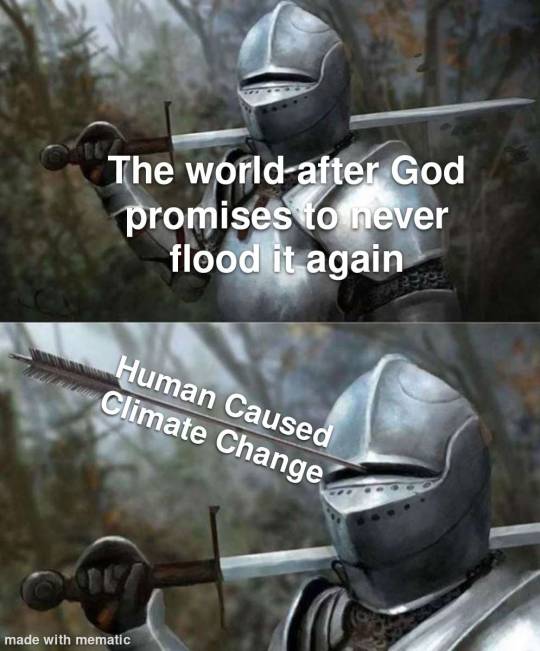

Episode 6 of the podcast is about the Flood, two different stories told as one that depicts God destroying part or all of the world and starting over. That's a difficult and horrendous story, made more horrendous by the fact that the rich seem so dedicated now to flooding the whole earth once more.
#thewordinblackandred#leftist bible study#leftist memes#anarchist#memes#communist#bible study#bible memes#christian memes#leftist#leftistbiblestudy#leftistchristianity#anarchism#communalism#communism#fresh memes
45 notes
·
View notes
Text

If you haven't seen the film, Kobane is on youtube, for free, and absolutely worth watching. It tells the story of ISIS's siege of the city of Kobane, in the north of Syria near the Turkish border, through the eyes of the YPG and YPJ volunteers defending the city.
youtube
219 notes
·
View notes
Text
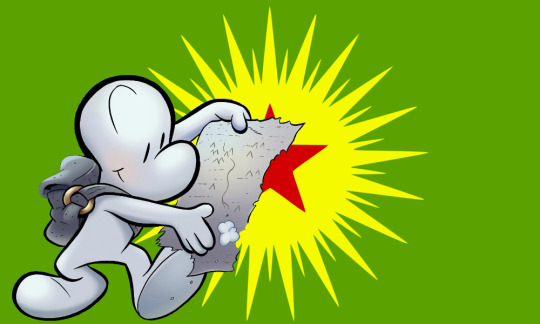
Fone Bone from Bone is a communalist!
28 notes
·
View notes
Link
It may be time to rediscover Murray Bookchin. Bookchin, who died in 2006, was a US foundryman, autoworker and shop steward who became a professor in the field he helped to develop: social ecology. While he has often been associated with anarchism, by the end of his life he had broken with that tradition. He called his political philosophy communalism.
His writings on this theme were published posthumously in a book called The Next Revolution. You wouldn’t read it for pleasure. His style is stern, clunky and verbose, without warmth or humour. But his ideas are powerful.
He makes a crucial distinction between statecraft and politics. He sees the state as a force for domination and statecraft as the means by which it is sustained. Politics, by contrast, is “the active engagement of free citizens” in their own affairs. He sees the municipality (village, town or city) as the place in which we first escaped from tribalism and parochialism and began to explore our common humanity. This is the arena in which we can now evade domination and create “a truly free and ecological society”.
Unlike classical anarchists, Bookchin proposed a structured political system, built on majority voting. It begins with popular assemblies, convened in opposition to the state, open to anyone from the neighbourhood who wants to join. As more assemblies form, they create confederations whose powers are not devolved downwards but delegated upwards. The assemblies send delegates to represent them at confederal councils, but these people have no powers of their own: they may only convey, coordinate and administer the decisions handed up to them. They can be recalled by their assemblies at any time. Eventually, in his vision, these confederations dislodge the states with which they compete.
He sees the assemblies as also gradually acquiring control over crucial elements of the local economy. Civic banks would fund land purchases and enterprises owned by the community. The aim is eventually to replace not only statecraft but also economic dominion.
Bookchin’s communalism is a major inspiration in the autonomous region in north-eastern Syria widely known as Rojava. In 2014, after local people defeated Islamic State terrorists and the Syrian government withdrew its troops to fight its civil war elsewhere, the Rojavans took the chance to build their own politics. Under extraordinarily difficult circumstances, they have created a place in which people have more freedom and control than anywhere in the surrounding regions. It is by no means a perfect republic, but its people have made Bookchin’s ideas work to an extent many believed was impossible.
91 notes
·
View notes